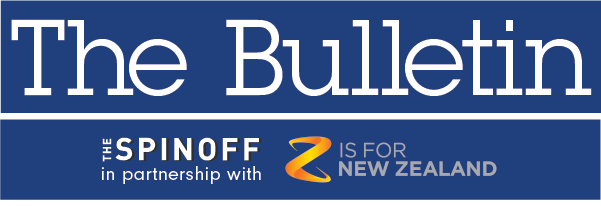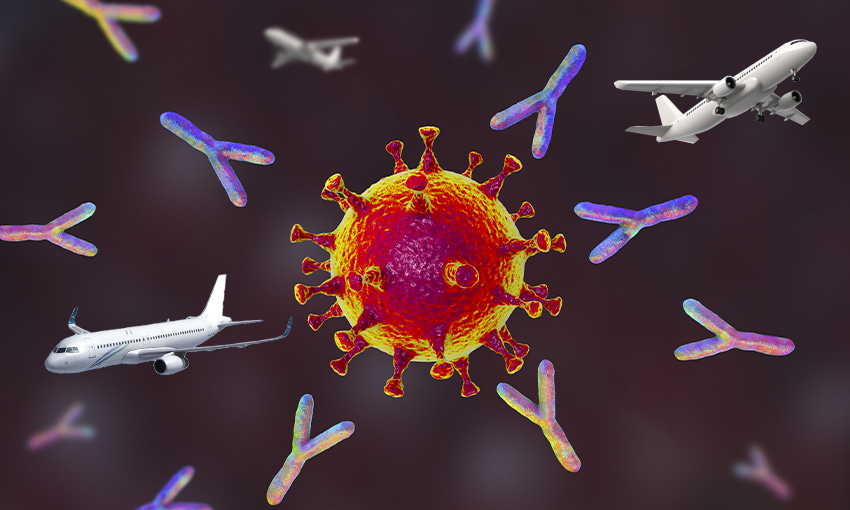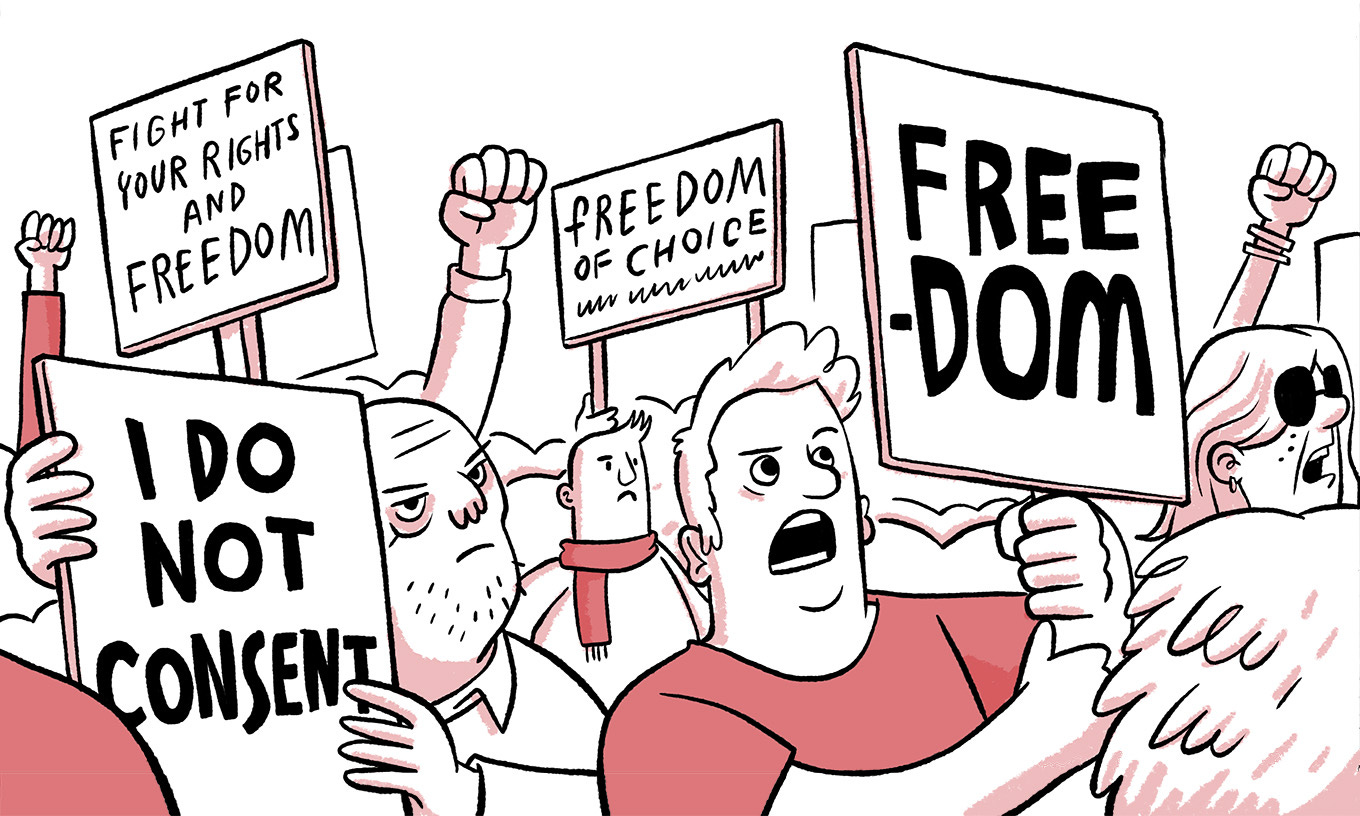NZ to have vaccine passport by Christmas
Meant for international travel, a debate looms for the country on how the passports will be used domestically
Good morning and welcome to The Bulletin for Wednesday, September 8, by Justin Giovannetti. Presented in partnership with Z Energy.
In today’s edition: A deal on more Pfizer doses is days away, Auckland to resume shipping out building supplies and the details on the country’s vaccine passport.
From London to New York, you’ll soon need a vaccine passport to travel. (Tina Tiller)
A vaccine passport is coming. New Zealanders will soon have access to digital proof that they’ve received a Covid-19 vaccination. Colloquially known as a “vaccine passport”, a government-run app will soon be as indispensable as a real passport for international travel. Many countries already require them to sit at a bar or attend a sports game. You can’t climb the Eiffel Tower without one.
Air New Zealand and Qantas have both announced that they’ll eventually require vaccine passports. Proof of vaccination is already a condition of entry for a number of countries around the world. Just as you can’t board many international flights now without the right visa, the vaccine passport will be added to your pre-flight checklist.
What it’ll look like. If you want to travel now to a number of destinations you need to first request a letter from the government attesting to your vaccination status. It’s a significant risk and there are stories of countries turning down the printed documents. Instead, the Ministry of Health says “a digital Covid-19 vaccination certificate” will be available from December for New Zealanders who want to travel overseas.
The term passport can be politically loaded—think of “papers, please”—so it’s one of the reasons many places around the world opt to call them certificates instead. New Zealand’s app will contain a QR code, a digital signature and the certificate itself will be printable.
The health ministry has been clear that New Zealand’s passport is designed for international travel and said nothing about domestic use. Based on how the passports have evolved around the world, that won’t last.
What’s happened overseas. The UK rolled out the passports for international travel, only to then announce that they’ll be required to get into English nightclubs and other venues in England at the end of the month, the BBC has reported. Despite criticisms, the government has said it's the only way to reopen the economy safely. In many cases, private industry was ahead of the British parliament, with Premier League clubs requiring fans to show proof of vaccination when they reopened stadiums to capacity crowds last month.
The looming debate. I spoke with Andrew Chen, a researcher at the University of Auckland, about a debate that’s about to take off in New Zealand. It’ll start like this: A business, hypothetically a supermarket chain, will announce that all customers will need to show the vaccine passport to buy groceries. Suddenly the international passport is domestic. The government can either ban businesses from using them this way (unlikely), or set the standards for who can ask for the passports and when.
“It’s coming. The government just needs to make a decision and figure out how to control the risks of discrimination and problems created by using an international document in a domestic context,” says Chen.
How does it discriminate? With Māori and Pacific peoples expected to have lower vaccination rates, do we just accept that portions of those communities will be banned from businesses going forward? That’s not a long-term solution, says Chen. There are also human rights and privacy implications that need to be settled. Chen has already received reports of employers asking their staff to tell them when they’ve booked vaccines. The privacy commissioner has said that vaccination status is health information that’s private and protected by legislation. This will only become a more significant issue in the coming weeks.
While the freedom of movement is enshrined into the New Zealand bill of rights, limits on that freedom have been justified on public health grounds. A number of the country’s international agreements also require it to prevent and control epidemic diseases.
What about people with exemptions? It’s one thing to trust trained border guards with the information in a vaccine passport, it’s another thing completely with a bouncer at a club or a security guard at a restaurant. The EU’s vaccine passport is working on a way to indicate when someone has a legitimate reason for not being vaccinated, something Chen says should be pursued in New Zealand as well. As he explains, do you want to show a supermarket worker a note from your GP that you’ve got a disease?
International exemptions will vary. What happens when a visitor from overseas arrives with an approved vaccine passport that says they’ve not been jabbed but they have, for example, a religious exemption not recognised by New Zealand? Chaos.
There’s a lot more chaos. Astrid Koornneef, a manager in the government’s Covid-19 vaccination programme, told the Bulletin that work is under way to ensure the passport is “compatible with emerging international standards, so it can be recognised by as many countries as possible”. The US, European Union and Australia have all developed vaccine passports technologies that can’t be used interchangeably. This is something the world will need to sort out. The best case scenario, according to Chen, is that you can change the settings in the app and get a different QR code for each jurisdiction.
The BMJ has published a helpful map with descriptions of a number of vaccine passports. Here are some systems being used overseas:
The European Union has a “digital Covid certificate” which proves that people have been vaccinated, received a negative test result or have recovered from Covid-19. It’s been in force across the EU since July 1 and has been adopted by nine neighbouring non-EU states, including Norway, Turkey and the Ukraine. Many EU countries require a vaccine passport for domestic venues.
The United States federal government has said it won’t adopt a national passport, while seven states like New York and California are slowly rolling out proof-of-vaccination systems. Another 22 American states have banned vaccine passports, largely along partisan lines, with Republicans opposing the apps. The MIT Technology Review has a fascinating look at the politics behind US vaccine apps.
Canada is working on a digital vaccine passport for overseas travel and most provinces are implementing local versions as a requirement for people to access restaurants, bars and other venues.
The Israeli government has a “green pass system,” allowing people over the age of 12 who are vaccinated to attend large events. It was suspended after the country’s vaccine rollout largely surpassed the virus, but was reinstated in July.
Singapore has bundled a vaccine passport into its contact tracing app and is required to enter many venues, including malls, schools and places of worship.
China has largely outsourced the job to private industry, with Alipay creating an app that sorts people based on national surveillance data into whether they should be restricted in their domestic movements. WeChat has created a health certificate for international travel showing vaccine status.
The Spinoff is doing our utmost to keep you updated on Covid-19 related news through this outbreak. Every dollar our members contribute directly funds our editorial team and is devoted to ensuring we do more. Click here to learn how you can support the team today.
A deal for more Pfizer doses. The prime minister has said an announcement is coming before Friday that the country has secured more jabs as a fast-moving vaccination programme is using up the country's stockpile. According to the NZ Herald, Jacinda Ardern couldn't confirm many details, but the deal is with a number of countries and delivery should start within days of an agreement. New Zealand is expecting massive shipments from Pfizer in October, so ongoing supply issues should be temporary.
The Covid numbers: 21 new community cases were reported yesterday and 20% of the previous day’s cases were active in the community while infectious. All the cases were in Auckland. The overall trend of daily cases is starting to plateau at about 20 cases. 841 cases have now been detected in the delta outbreak (one case was removed from the count because it was a duplicate). 66,310 people were vaccinated yesterday.
For everyone outside Auckland, welcome to delta two. Well done Aotearoa.
On the subject of shortages. Auckland's suppliers of critical building materials are being allowed back to work to ease shortages across the country, Stuff reports. Builders, including Kāinga Ora, were facing slowdowns as everything from gib board to pink batts was running out. Other businesses are now demanding relief, with hospitality businesses in Auckland threatening to stop paying GST unless they get support. The owner of Shaky Isles Coffee told Stuff that delta two is the worst alert level for business because they don’t get support and can’t trade easily.
A paid message from our partner Te Taura Whiri, the Māori Language Commission: Join us in celebrating te reo Māori at 12pm on Tuesday, September 14. Sign yourself and your workplace, whānau and flatmates up to our Māori Language Moment. Kia kaha te reo Māori, kia kaha Aotearoa!
Rushed counter-terror bill faces opposition from Greens, Act. The two parties that agree on little are worried that the proposed legislation could stigmatise refugees and create new problems, RNZ reports. The government wants to speed through the bill after Friday's terror attack at LynnMall and has the full support of National to do it. Among other things, the bill would make it possible to deport refugees and make it a crime to plan an act of terrorism. It's an incredibly odd situation where Jacinda Ardern and Judith Collins are allies for something while David Seymour and the Green leaders are allied against.
Quacking up a storm. Our Australian neighbours have now passed on their particular grasp of the English language to a duck, after footage has emerged of one spouting off at passersby. "You bloody fool" the duck named Ripper said near the Australian capital, according to The Guardian. I've never known a duck to lie, so obviously someone is a bloody fool in Canberra.
Got some feedback about The Bulletin, or anything in the news?
Get in touch with me at thebulletin@thespinoff.co.nz
Right now on The Spinoff: Toby Morris looks at how we trade freedom for collective security every day. George Driver asks if New Zealanders care less about climate change than other countries. Justin Latif reports on how one takeaway owner is getting through lockdown with an ultra-upbeat Instagram account. Rawiri Jansen says David Seymour should look at the evidence and not just go around race trolling. Chris Schulz writes about Lance Savali, who might have some claim to being the country's coolest celebrity.
A message from our partners at the Middlemore Foundation: With your support, the Middlemore Foundation is providing South Auckland families-in-need with essential care packs, including masks, sanitisers, sanitary pads, toiletries and wipes, to support them through lockdown. These packs will ensure the safety of our South Auckland whānau, many of which include essential workers. Donate here to support a family in need.
A very short game of football. A World Cup qualifier between Brazil and Argentina was abandoned on Sunday night after five minutes of play. It was a complicated fiasco, according to ESPN. What happened? Four Argentinian players "supplied inaccurate information" on their Covid-19 disclosures when they arrived in the country. They likely lied. Had they written accurately that they'd been in the UK, where all four of them play, they would have needed to quarantine. A deal was reached before the game for the four players to stay in their hotel. Then an unexpected announcement was made that they were being deported instead. Deal broken, they went to the pitch to play. Shambles.
That's it for The Bulletin. If you want to support the work we do at The Spinoff, please check out our membership programme.







